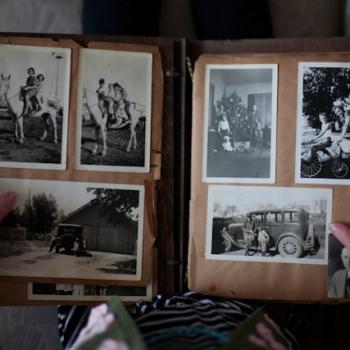
My past articles have largely covered books and movies within the Science Fiction genre. We’ve looked at classics like A Brave New World, Frankenstein, and Foundation, to twisty horror like Life, and Annihilation, and more besides. All these stories engage the mind and lead the reader to think deeply. Fantasy, however, particularly fantasy written for children, is one of the best ways to engage human emotion. This is exactly how I feel about the movie Song of the Sea.
To Feel is to Feel Pain.
Song of the Sea, a 2014 animated offering from Cartoon Saloon is an example of their unique and recognizable style. Mostly inspired by Irish folklore, the studio is one of the originators of the move away from realism in animation and toward artestry. The movie is not just a feast for the eyes. It’s a whimsical and emotionally impactful story that is both safe for a family setting, and yet meaningful for the most hardened adult
Song of the Sea follows a small, broken family living on an island and tending an ancient lighthouse. Ben, a ten-year-old Irish boy blames his younger sister Saoirse for his mother’s disappearance. Their father has become distant and sad, taking no delight in anything now that his wife is gone. Ben’s only friend is a massive, shaggy, English Sheepdog named Cu.
Saoirse, however, is a Celtic sea spirit known as a selkie, like her own mother. One night she discovers the coat that allows her to transform into a seal. Their father, terrified of losing his daughter and unable to face the loss, locks up the coat in a chest and throws it into the sea. The children are then sent to live with their grandmother in the city.
A witch called Maca is intent on capturing the newly realized Saoirse. This witch wants to consume the emotions of hurting mythical beings, looking them in stone. At the same time, Ben is determined to get back home and to his only friend, Cu. When he runs away from his grandmother, Soairse follows along. She is, however, increasingly ill and week as she is cut off from the magic of the sea and the coat.
In the emotional hinge-point of the story, Saoirse is kidnapped by the witch, who is draining her of all emotion. Soon the small girl will only be a lump of carved rock. In fighting for his sister, Ben discovers that Macha is not as evil as she seems. When she watched her son suffer deep loss, she concluded that emotions were the source of all suffering. Rather than help him through the grief, she chose to take away her son’s ability to feel anything. She is also bottling up (literally) her own feelings, turning herself cruel and stone-like. The movie directly correlates Maca to the children’s own grandmother, who chides her son to forget his wife and separate himself from the children he loves so he is no longer in pain. Who, in her attempt to remove the hurt, has become cruel and heartless to her child and her grandchildren.
Ben cannot save his sister without loving her. He cannot love her without mourning the loss of his mother and remembering the lessons and love he taught her. He, his father, and his grandmother were all trying to turn themselves into metaphorical stone, in an attempt to block the suffering of loss and of seeing those around them in pain. Without intending on hurting Saoirse, they were trying to force her to do the same.
In a powerful moment, Saoirse, using the memories and lessons her mother passed down to her through Ben, breaks the jars of emotions and frees bother herself and Maca from stone. With her emotions restored, the witch weeps for what she has become. It is also the moment she becomes their most powerful ally.
There are so many children’s stories that are afraid to move beyond simple moral lessons such as acceptance of self and others, and of dreaming big, and having friends. I wouldn’t dismiss those stories outright, but there is something truly powerful about a children’s story that isn’t afraid to tackle themes as big as mourning, family trauma, and the value of emotions.
Demonizing the Heart
Emotions are something the world regards with suspicion. There are very few places that have a full and healthy relationship with them. People often regard them as either weak or transactional. The Western world, in particular, has a great deal of disgust for human emotion.
I had an unconventional childhood, but somehow when returning to the States I was both shocked by the Western world’s aversion to emotion and still affected by it. I remember how proud I was, as a child, that I did not cry often and how upset I was, as a young adult that my ridiculously “female” hormones had me crying at every song and commercial.
As a former childcare provider, I saw how young children’s emotions were seen as a source of irritation for their parents. Fear was squashed with bullying, wonder with impatience, and love with absence. Later I saw how my husband attacked emotion both in himself and others, despite being a very emotional man himself. He viewed tears, even during his father’s funeral, as weak and hateful. He squashed anything that caused him any sort of emotional sensation with the same efficiency as those parents I had run into in my childcare profession.
When I mourned my own mother’s fight with cancer and her passing, I further saw how the world hated my pain. It wasn’t hat people hated that they hated the fact I was going through pain. There was, also, a fair amount of good and Godly people who had a more correct and Biblical viewpoint. The majority of people couldn’t handle the fact that they had to be reminded of pain and death by my Mom’s illness and my grief. I was told I was being over-sensitive and that I had no right to be upset because my life was so good.
If my mom spoke about wrestling with her mortality, people were quick to dismiss it. They even scoffed at her. “You won’t die.” Some gave her spiritual reasons for her condition, claiming breast cancer was caused by bitterness, or that she just didn’t have enough faith. Others sent money, or cards, but avoided her face-to-face. People would meet the family’s prayer requests with un-asked for “advice” about what my mom should or shouldn’t eat. For my Mom as well as the rest of the family, there were not many safe places to be sad.
There are many ways our culture, and others, deny people access to their emotions. They gatekeep what should be a valid way to feel. Some treat emotions as if they should not factor into our decision-making or perception of the world. Some emotions are altogether shunned and not allowed. Try, for instance, talking to a Christian about doubt or betrayal.
I could say this is especially egregious for men. Suicide rates for men, after all, have always been high and regularly been ignored. While I am proud to see conversations around these things lately, I’m sad that there is so much division around what that should be like. A man who cries is still seen as weak, but more acceptable in some circles. A man who shows anger might be accepted by peers but is hated and feared by others. Men whose brokenness drives them to violence or isolation are viewed as disgusting and unworthy to ever be cared for.
This treatment towards men has a similar but less obvious effect on women, though. Men are taught that human emotions are dangerous and feminine and that they should be severed without mercy. Women, on the other hand, are told that they are inherently “more emotional”, and due to that are less capable. They are even taught to mistrust themselves, making them more likely to stay in abusive relationships both in a romantic, and platonic context. After all, if we cannot trust ourselves, we must become a burden to others.
Children, I think, are the worst harmed by our cultural distaste for emotion. Children are either punished for their human emotions, are not taught how to regulate them, and instead be ruled by them. In the worst cases, this can increase the risks of abuse in childhood and criminal behavior in adulthood. They are taught to distrust themselves, meaning they are less likely to come for help when they are being sexually abused or if they are struggling with mental or emotional health. They are made to believe the existence of those emotions is deviant and unnatural, meaning they are more likely to drift towards dangerous ideologies where they may feel they fit in better and are appreciated for who they are. Finally, they are ignored when they ask for help. After all, if we hate those emotions in ourselves, we cannot possibly help a child work through their emotions. Instead, we numb our children’s emotions with technology and social media, packed full of predators and pornography. Or we dose them with drugs like anti-depressants, steroids, and stimulants, some needed and some not, leaving them vulnerable to life-long substance abuse.

The Power of a Well-loved Emotion.
In The Song of the Sea, the only the family has to rescue Saoirse is to hold on to the emotions she desperately needs, even if they are painful. The way to heal was through embracing the sorrow, grief, and loss rather than pushing it aside or bottling it up.
Not only did accepting those emotions as an essential thing keep Saoirse from the danger of being turned to stone, but it also transformed her life for the better. When Ben, Saoise’s father, and grandmother began to process the loss of her mother, the family finally could heal. Ben could love his sister for who she was, and what her presence brought to the family, rather than hating her for what he perceived she had taken from him. Their father could enjoy the family remaining to him, and fight for their future, rather than looking into the past with regret. Their grandmother was able to see the joy around her rather than just the danger.
This healing is also reflected in the mythical world. When Saoirse gets her voice back, and is allowed to embrace the fullness of who she is, her song restores life to the fae that had been turned to stone. It returns the children’s mother to them, though she must soon leave again. It releases the mythical creatures from the modern, hostile earth. Song has always been the language of human emotion and spirituality. We even see in Revelation that the angel’s language before the throne of God is comprised of song. (Revelation 4:8-11).
The use of music and the magic it possesses is a literary parallel to human emotion. Allowing music to flow is allowing emotion to flow.
Human Emotions in
Christian orthodoxy establishes God as a holy trinity: both three individuals and yet one entity. He is Father, Son, and Spirit, and yet all three of those persons are one God (Deuteronomy 6:4)
This composite nature of the trinity is reflected in many areas of nature. One of those areas is in ourselves. We are a combination of spirit, body, and intellect. All of these components are equally of value. More importantly, all of these components are equally deserving of care. Physical health issues impact mental health. Intellect can be damaged by mental health struggles. The lack of care for the intellectual and emotional health can shorten life span and increase chronic illness. We must treat the human being as a whole entity rather than attempting to dissect them into parts. Yet all of these parts must be individually thought of in order to best treat the whole.
When we understand this it will not just change how we conduct ourselves within our relationships and within society as a whole, but how we conduct ourselves in relationship to God. God is a God who shows human emotions. God shows rage, though it is always righteous. (Nahum 1:2-3) He delights and takes joy. (Genesis 1:31) In his earthly form, Jesus weeps (John 11:35) We even see passages of scripture like Stephan’s death, where Christ is seen standing rather than seated, indicating his delight at welcoming a beloved friend. In Job its hard not to get the feeling that God is frustrated, if not with Job than with his friends. (Job 42). You cannot read through Christ’s ministry without experiencing an overwhelming sensation of compassion and sorrow.
Moreover, God seems to delight in our emotions. Psalms is full of tears, anger, and confusion. Job is not punished despite his depression and bitterness. Thomas is not thrown into hell for doubting Christ but instead given gentle correction.
We can cry with the Psalmist, without fear of reprisal. We can be honest about our feelings. We can make use of languages we may have forgotten when it comes to communication with the Holy Spirit and with God. We can find healing and grace knowing that the God who designed our human emotions does not despise them.
Join me on Friday, October 18, 2024, to look at The Martian.












